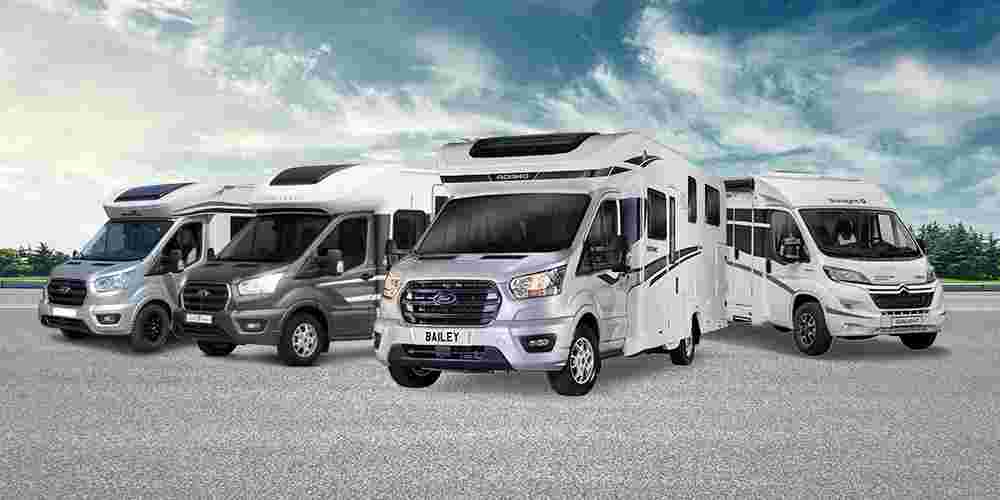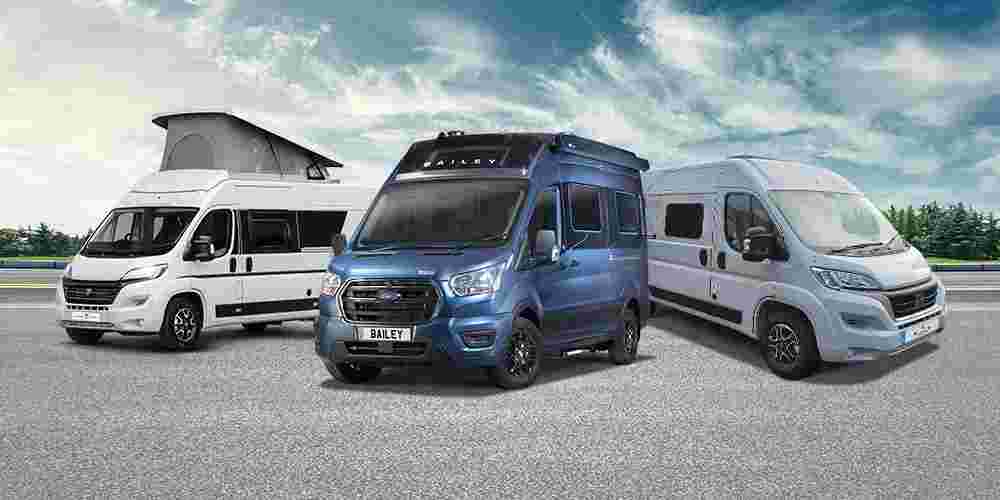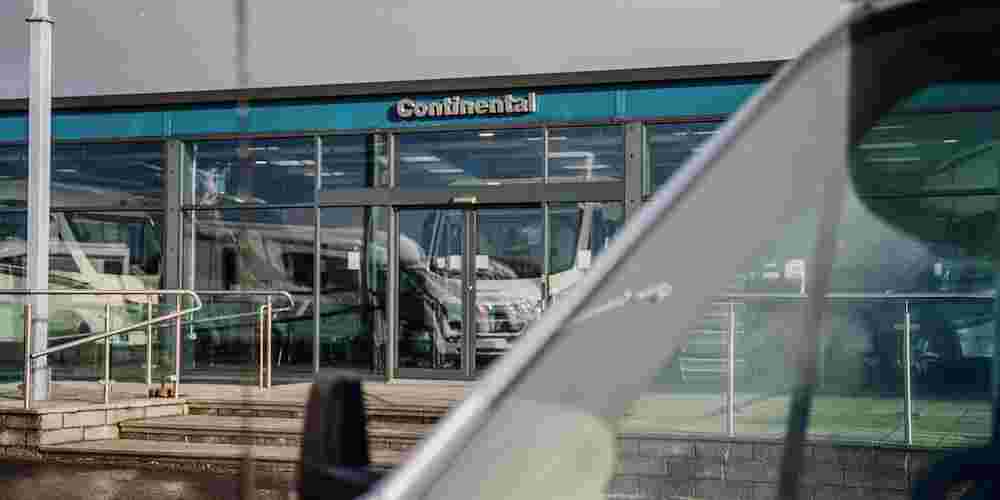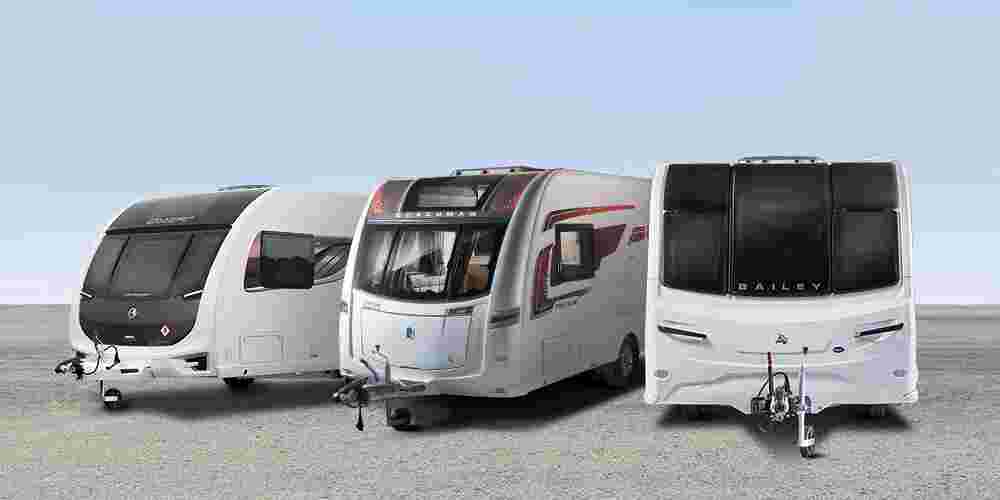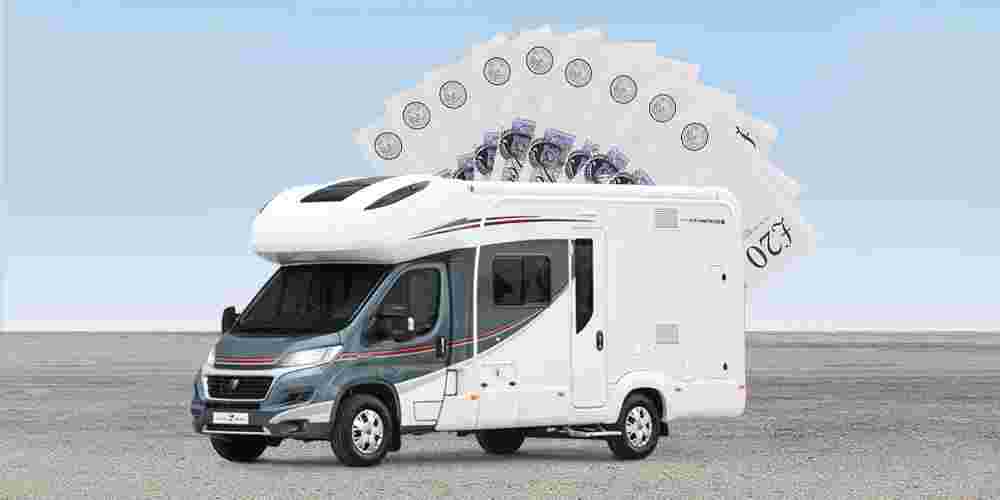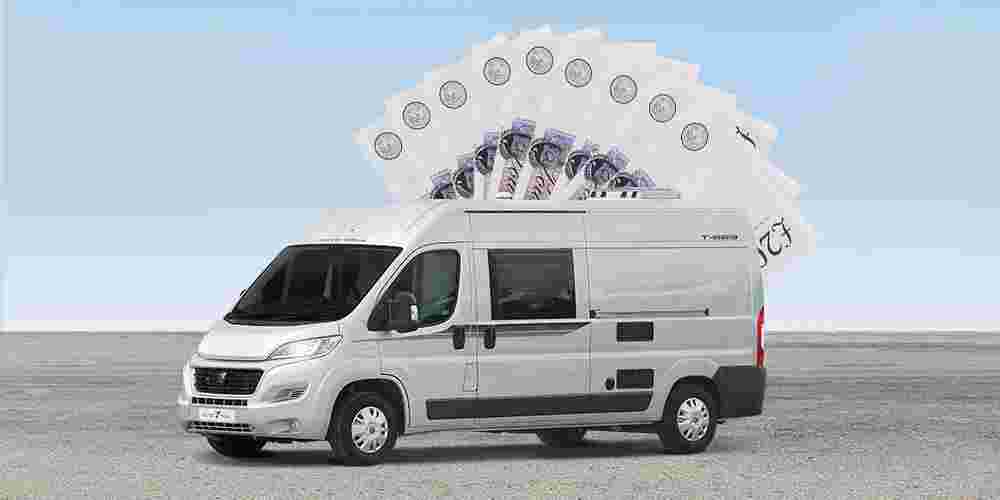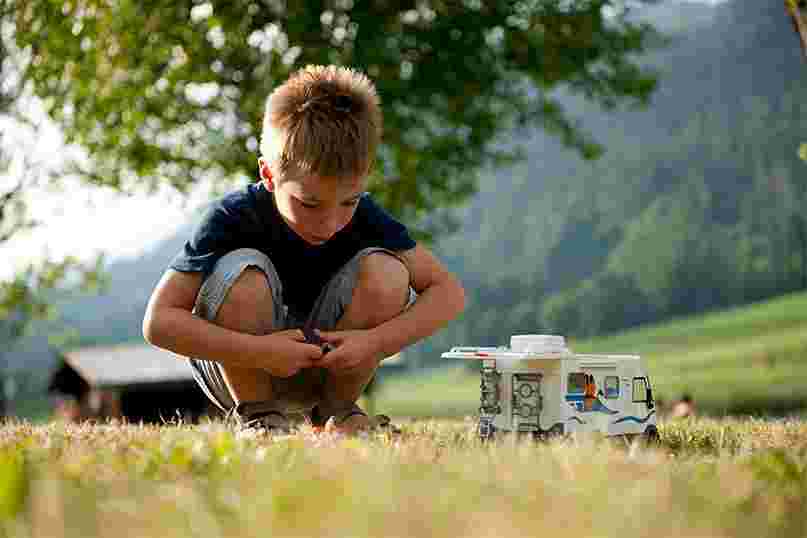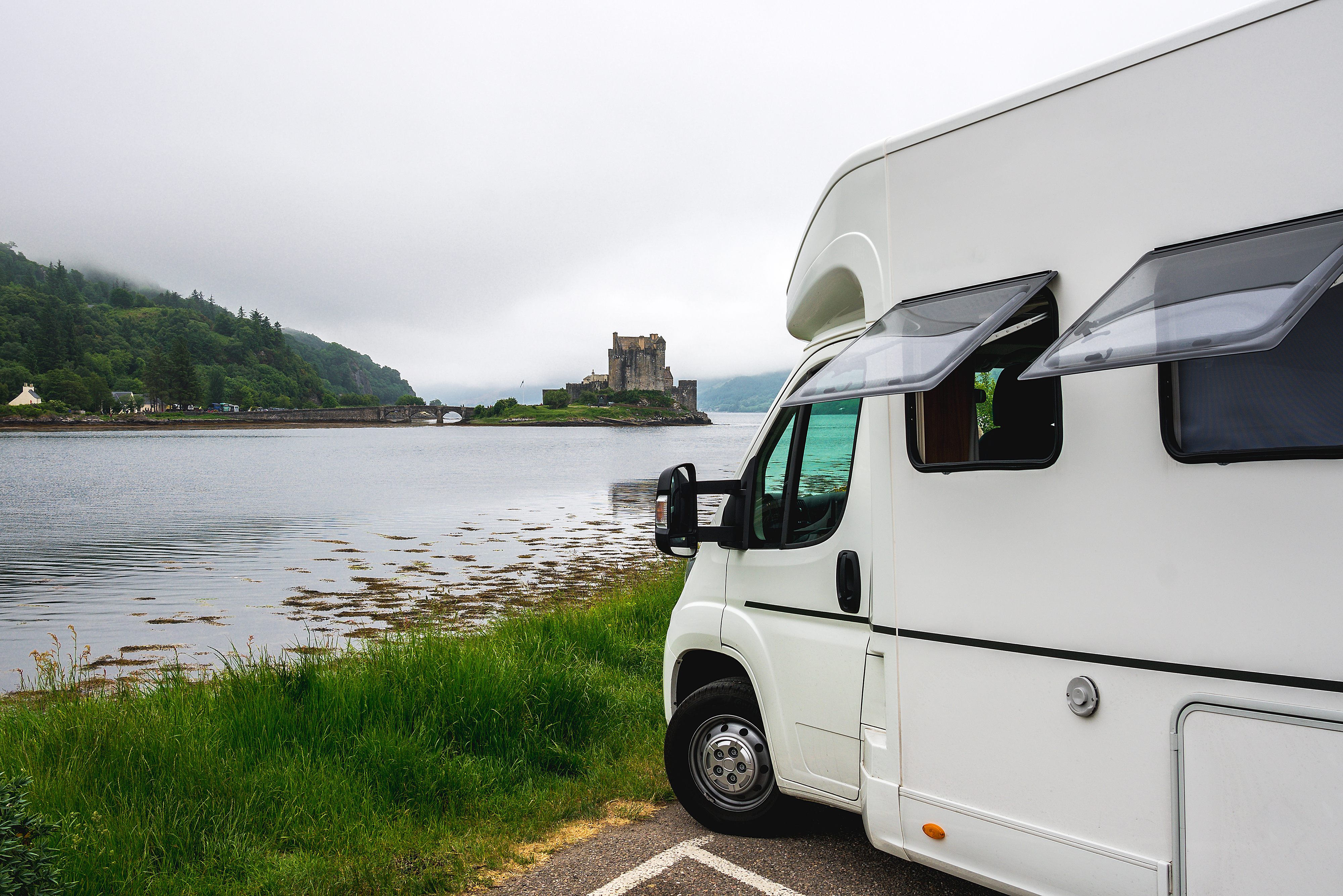
Essential Safety Tips for First-Time Motorhome Owners
15.01.25
As a first-time motorhome owner, you’re falling in love with the lifestyle, enjoying the thought of happy times ahead in your new mobile home from home. Naturally, you’re also going to want to know the essential safety tips you should follow - both on the road and off it (ie. when you’re parked up). This edition of our blog offers a thorough look at the things that will ensure your safety and the security of your motorhome, from pre-trip prep to travel safety tips to emergency planning.
Inspect Your Motorhome
One of the most important aspects of pre-trip preparation is making sure that your motorhome is roadworthy.
- Tyres: The tyres should be inflated to the correct pressure (as recommended by the motorhome manufacturer) and the tread should be in good condition. Examine them for any visible wear or cracks.
- Engine, fluids and lights: Oil, coolant and brake fluid levels should be checked and maintained. It’s also a good step to check the air filter and make sure that all the motorhome’s lights (including indicators) are working properly.
- Brakes: It’s essential to make sure that the brakes are in top condition, as motorhomes can be much heavier than cars and therefore put more strain on the braking system.
- Suspension: Motorhomes carry significant weight so as well as the brakes we just mentioned, it’s also very important that the suspension is in good working order to prevent handling issues.
- Onboard systems (water and gas): All the onboard systems should be thoroughly checked. Make sure water systems function properly and ensure gas cylinders are full and working. Pay special attention to any leaks in the lines.
- Battery: You should also check the charge on both your leisure battery and the vehicle battery, especially if the motorhome includes electronics or appliances that run using power off the leisure battery.
If you’re not confident in making any of these checks, think about having your motorhome serviced by a professional before setting off.
Get Familiar
Before you head out on the road, you should take some time to get familiar with your motorhome's controls and features and become comfortable with them. Although in basic principle they’re similar, driving a motorhome can vary significantly from driving a normal car, so it's essential to know how to operate essential systems. Familiarising yourself will give you confidence and prevent mistakes on the road.
- Gears: If you're driving a manual motorhome, you’ll need to get used to the gear changes to account for the extra weight.
- Cruise control / speed limiter: Motorhomes are larger and heavier than other vehicles and can therefore be slower. So, over-speeding can be dangerous, especially if you’re driving in unfamiliar areas.
- Electrical systems and appliances: Make sure you know how to use all the motorhome’s electrical appliances properly and safely (eg. fridge, microwave, media and infotainment, heater etc. Ensure you also know how to monitor your battery levels.
Drive Safely
Motorhomes are more challenging to drive than normal cars, so it’s vital to take each journey with care. Our list of driving tips will go some way to ensuring your safety and that of other road users.
- Route: Motorhomes are large and heavy (or, even in the case of more compact models, larger and heavier than typical cars), so taking some time to plan your route is important. By doing so you can make sure you avoid routes that include narrow roads, low bridge, or tunnels that may not be able to accommodate you. Use a sat nav device designed specifically for motorhome travel as it will account for any restrictions around the vehicle’s height and weight.
- Rest: Also check for rest stops along your planned route, as motorhome drivers often need to take longer breaks than car drivers.
- Stopping Distance: Motorhomes take longer to stop due to their weight, so make sure you keep a bigger gap between you and the vehicle in front. Your reaction time may be slower than in a normal car, so it's always better to err on the side of caution.
- Corners: Motorhomes have a higher centre of gravity, which makes them more prone to tipping. So, take corners at lower speeds to prevent swaying.
- Wind: Strong winds can be something of a challenge for new motorhome drivers. When driving in strong winds, hold the steering wheel with both hands and steer steadily. If possible, avoid driving in extreme weather conditions at all.
- Speed: Motorhomes are slower to accelerate and decelerate compared to other vehicles. It’s essential to keep your speed well within legal limits, but also adjusted for the specific conditions (road surface and weather).
- Parking and manoeuvring: Parking can be one of the more challenging aspects of new ownership. Always reverse into parking spaces when you can as this allows for easier exits. When parking, make sure you’re in a safe and spacious area.
Camping and Parking Safety
When you're parked up for the night, the safety of you and your vehicle remains a priority. It’s essential to park in secure, safe and legal locations. Some areas have regulations regarding overnight parking for motorhomes, and you should always research local laws and comply with them, to avoid fines or being asked to move.
- Designated Campsites: The safest option for parking is a campsite, as they are designed to accommodate motorhomes and usually offer essential amenities like electricity, waste disposal and potable water.
- Isolated areas: If you’re parking overnight in a remote area, choose one where there is adequate lighting and a level of visibility likely to deter criminal activity.
Motorhome Security
Motorhome security is an (often overlooked) important element of ownership. A few simple precautions can help prevent the heartbreak of theft or vandalism.
- Alarm: Choose an alarm system that includes motion detectors, door and window sensors and (if possible) a remote panic button. Some alarm systems also include GPS tracking, which can be invaluable in the event of theft as it will plot and report on the movement of your motorhome.
- Locks and clamps: For added peace of mind, consider using physical security measures such as a steering wheel lock or wheel clamp. These make it a lot harder for thieves to steal your motorhome, even if they manage to break in.
- Doors and windows: Always make sure that doors and windows are securely locked when you leave the vehicle, even if you’re only stepping out for a moment. It’s easy to forget in the excitement of being on the road and exploring, but a few seconds of care can prevent a costly and time-consuming theft.
- Parking: If you have to leave your motorhome for an extended period, park up in well-lit and busy areas. Thieves are less likely to target a motorhome that’s in constant view of the public (say, near a busy street).
Emergency Planning
Having a plan in case of emergencies is an important part of safety for new motorhome owners. Whether it’s a vehicle breakdown, an accident or a medical issue, being prepared can make all the difference.
- Emergency kit: Every motorhome should have a well-stocked emergency kit that includes first aid supplies, a torch (and extra batteries), a reflective warning triangle, jump-start cables, a fire extinguisher and a spare tyre plus tyre changing tools.
- Clarity: If your motorhome breaks down, it's important to stay calm and clear in mind, and aware of the steps to take. Always carry breakdown cover, and make sure you have contact information for roadside assistance or recovery on hand. If you break down in a dangerous or high-traffic area, move your vehicle to a safer location if possible. Turn on the hazard lights and wait for assistance.
- Emergency contacts: In case of medical emergencies or accidents, make sure you’ve got emergency contacts readily available. These should include a breakdown service, insurance information and details of local hospitals. A good rule of thumb is to always keep this info visible and accessible - although in the modern world you should be able to easily store it in your mobile phone.
Motorhome ownership can be an incredibly rewarding experience – and, by following the motorhome safety tips we’ve offered in this edition of our blog, you can make sure you stay safe on the road, in your vehicle and when you’ve parked up for the night. Safe travels!
